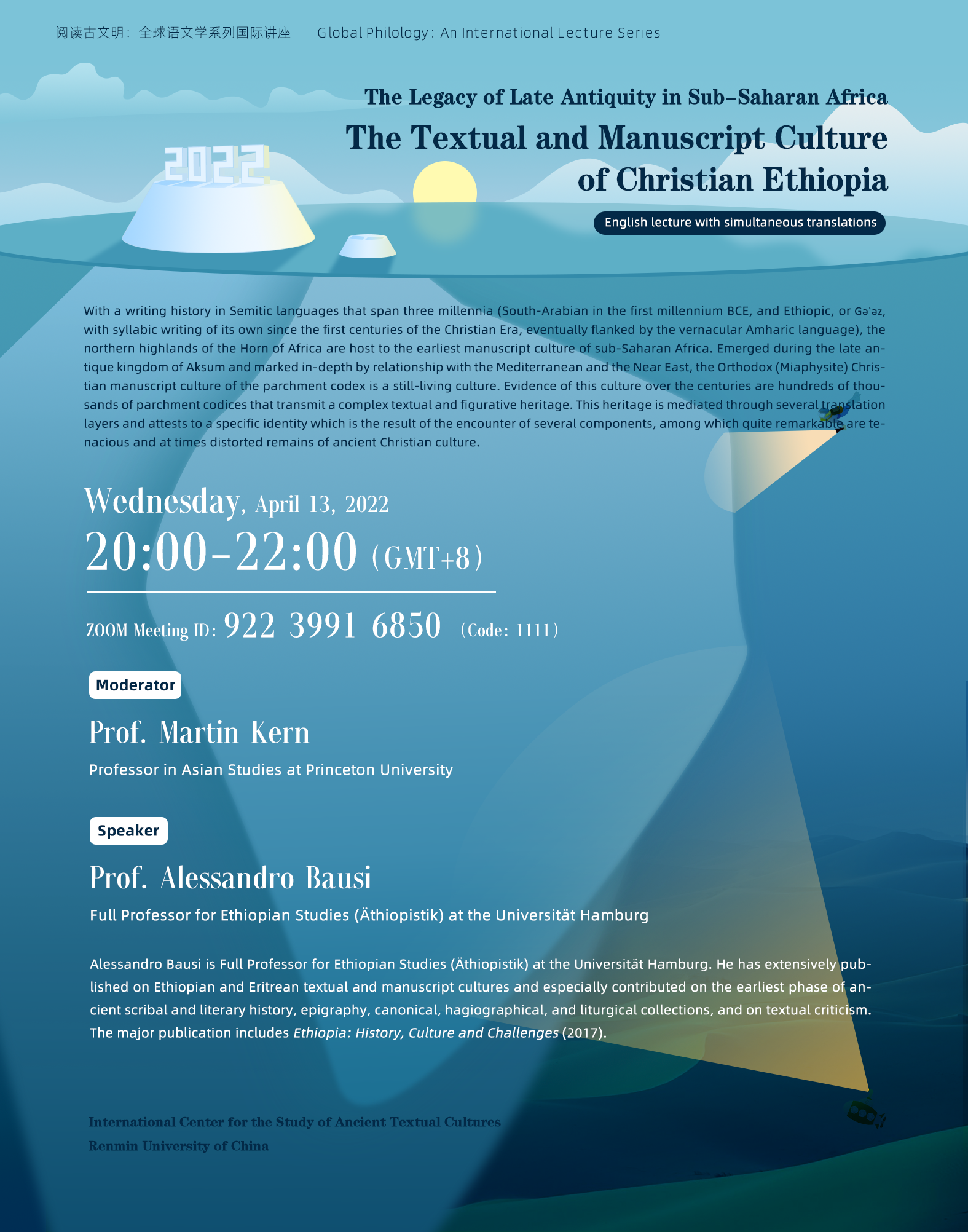[Upcoming]The Legacy of Late Antiquity in Sub-Saharan Africa: The Textual and Manuscript Culture of Christian Ethiopia
发布时间:2022-04-09Global Philology:An International Lecture Series
The Legacy of Late Antiquity in Sub-Saharan Africa: The Textual and Manuscript Culture of Christian Ethiopia

Title: The Legacy of Late Antiquity in Sub-Saharan Africa: The Textual and Manuscript Culture of Christian Ethiopia
Speaker: Alessandro Bausi
Full Professor for Ethiopian Studies (Äthiopistik) at the Universität Hamburg
Moderator: Martin Kern
Professor in Asian Studies at Princeton University
Time: Wednesday, April 13th, 2022, 20:00-22:00(GMT+8)
ZOOM Meeting ID:922 3991 6850
Code:1111
ZOOM Link: https://zoom.us/j/92239916850?pwd=MnhBaGxZY1ZpQ3BGMWovRHR1U0h2QT09
Speaker Information:
Alessandro Bausi is Full Professor for Ethiopian Studies (Äthiopistik) at the Universität Hamburg. He has extensively published on Ethiopian and Eritrean textual and manuscript cultures and especially contributed on the earliest phase of ancient scribal and literary history, epigraphy, canonical, hagiographical, and liturgical collections, and on textual criticism. The major publication includes Ethiopia: History, Culture and Challenges (2017).
Abstract:
With a writing history in Semitic languages that span three millennia (South-Arabian in the first millennium BCE, and Ethiopic, or Gǝʿǝz, with syllabic writing of its own since the first centuries of the Christian Era, eventually flanked by the vernacular Amharic language), the northern highlands of the Horn of Africa are host to the earliest manuscript culture of sub-Saharan Africa. Emerged during the late antique kingdom of Aksum and marked in-depth by relationship with the Mediterranean and the Near East, the Orthodox (Miaphysite) Christian manuscript culture of the parchment codex is a still-living culture. Evidence of this culture over the centuries are hundreds of thousands of parchment codices that transmit a complex textual and figurative heritage. This heritage is mediated through several translation layers and attests to a specific identity which is the result of the encounter of several components, among which quite remarkable are tenacious and at times distorted remains of ancient Christian culture.